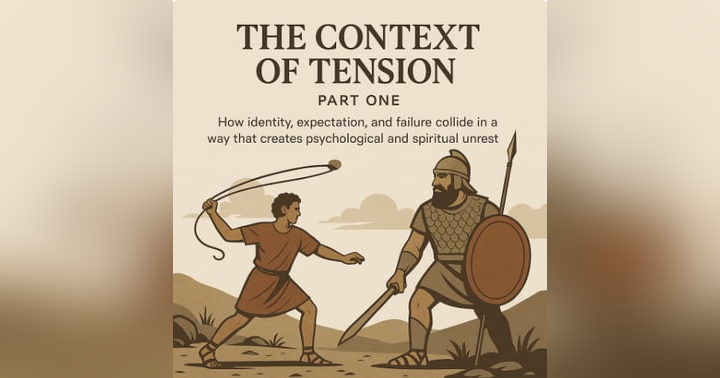Bible Prooftexting: Cherry-Picking or Solid Interpretation?

Bible Prooftexting: Cherry-Picking or Solid Interpretation?
Bible proof texting is selecting specific verses to support beliefs, often ignoring context. This article explains what it is, its dangers, and how to avoid it.
Key Takeaways
Proof texting, or cherry-picking scriptures, risks distorting theological meanings by ignoring the broader context of the verses.
Understanding the historical and cultural background of biblical texts is crucial for accurate interpretation and to avoid misapplication of scripture.
Engaging with the Holy Spirit and studying scripture holistically fosters a deeper and more authentic understanding of God’s word.
What is Bible Prooftexting?

Proof texting is the act of selecting specific scripture passages to validate a theological belief, often disregarding the overall context. This practice is common in Sunday sermons, where a single Bible verse is used as a proof text to support a theme or message. While this approach can be effective in making a point, it often risks oversimplifying complex theological concepts.
In theological and exegetical discussions, prooftexting refers to the practice of citing biblical passages to validate a theological stance while disregarding the surrounding context of those verses. This can lead to interpretations that support a particular viewpoint without considering the broader narrative or the intent behind the scriptures.
While proof texting is a prevalent method, particularly among those seeking to make a quick point, it is crucial to understand that God’s word is much more than a collection of isolated verses in the world. The Bible, with its Old Testament and New Testament, is a rich tapestry of interconnected story, teachings, and revelations that have been written over centuries. To truly grasp the depth and meaning of scripture and its writings, one must go beyond proof texts and engage with the bible open as a whole.
The Dangers of Cherry-Picking Verses

The major concern surrounding proof texting is the method employed, which can lead to selective emphasis on certain scriptural texts, often favoring specific authors like Paul. This selective approach, known as cherry-picking, can result in significant misinterpretations that distort the original message of the Bible verses. Critics often highlight the adage that a text divorced from context is merely a pretext, underscoring the risks of interpreting a verse without considering its context.
When we cherry-pick verses, we risk creating a fragmented understanding of scripture that aligns with our preconceived notions rather than the holistic message of the Bible. Engaging with the full breadth of biblical teaching helps justify such misinterpretations and encourages a more nuanced and accurate understanding of God’s word, as it is taught. The authoritative presence of a speaker on stage can make proof texting seem like an unquestionable truth to listeners, further entrenching these misinterpretations.
Recognizing the dangers of cherry-picking verses encourages a more integrity-driven and humble approach to scripture. This involves not only reading individual verses but also exploring similar passages and the broader context in which they are situated, as righteousness is essential to understanding. Only then can we hope to uncover the true meaning and intent behind God’s word and mention it appropriately.
Context is Crucial
Understanding the surrounding circumstances of a biblical text, including its historical and cultural backdrop, is vital for accurate interpretation. When we isolate a verse from its context, we risk misinterpreting the author’s intent and the divine message behind the words. The political climate at the time of writing can significantly influence a passage’s meaning, adding layers of depth and understanding often missed without context.
Cultural customs during biblical times also play a crucial role in understanding certain actions or statements within the scripture. For instance, the practice of hospitality in the ancient Near East can shed light on various biblical stories that might seem perplexing to modern readers. The literary genre of a biblical text affects how it should be read and interpreted, as different genres possess unique conventions.
Comparing ambiguous verses with clearer passages helps derive accurate theological insights. Always interpreting ambiguous passages in the light of those that tend to be more pointed means helps establish a biblically balanced viewpoint.
Recognizing both the human author’s intent and the divine intention behind a scripture passage is crucial for proper interpretation. A proper understanding of scripture should not ignore the human author’s context but must also make sense of God’s overarching purpose.
Authorial Intent vs. Personal Interpretation
The interpretative model of the New Testament incorporates a divine perspective that may not always align with the human author’s immediate intent. Scripture’s divine meaning can differ from the human author’s intent, as seen in instances where biblical prophets recorded revelations they did not fully comprehend. This duality highlights the complexity of interpreting God’s word and the need to consider both the human and divine aspects of scripture.
Human authors of scripture may not fully grasp God’s intent, leading to deeper meanings than originally understood by the writers themselves. While it is essential not to contradict the human author’s intent, acknowledging that divine meaning can extend beyond what the human author grasped is crucial. Prooftexting can lead to interpretations that misrepresent the original intent of the scripture, further complicating our understanding of God’s word.
A balanced interpretation of scripture should honor the original intent of the human author while also considering the broader divine message. Understanding a scripture’s meaning requires acknowledging both the human author and the divine Author, as each contributes to the text’s interpretation. By doing so, we can approach biblical interpretation with greater depth and fidelity to the true message of the Bible.
The Role of the Holy Spirit in Interpretation
The Holy Spirit is essential for accurately interpreting Scripture, guiding believers to understand its truth and application. Without the Holy Spirit, interpretation can be flawed, as human biases often distort spiritual insights. Prayerful engagement with the Holy Spirit is necessary for readers to discern the meaning of biblical texts in their lives.
Hermeneutics, the study of interpretation, is complemented by reliance on the Holy Spirit to provide clarity and insight. Engaging with the Holy Spirit allows believers to move beyond mere intellectual understanding and experience the transformative power of God’s word. This divine guidance helps ensure that our interpretations align with the true intent and message of scripture.
Acknowledging the Holy Spirit’s role in interpretation fosters humility and grace, allowing God’s truth to resonate in our lives. This reliance on the Holy Spirit fosters a deeper and more authentic engagement with the Bible, enhancing our faith and understanding.
Examples of Misused Bible Verses

Psalm 51:5 is often cited to argue that children are born with sins, but this interpretation contradicts the broader biblical teaching that sin is an act committed by a person, not inherited.
Similarly, John 14:13-14 is frequently misinterpreted as a blank check for requests, whereas it specifically relates to glorifying God through Jesus. These examples highlight the dangers of taking verses out of context and the evil importance of understanding the broader scriptural message and the claims made about these interpretations.
Proverbs 22:6 is another example of a misused Bible verse, often cited to claim that proper parenting guarantees a child’s faithfulness, ignoring that true faith is a matter of the heart.
Philippians 4:13 is frequently taken out of context to support personal ambition, while it actually emphasizes contentment regardless of circumstances. These wrong misinterpretations can lead to significant misunderstandings and misapplications of God’s word.
Jeremiah 29:11’s promise is often used for personal assurance, but it originally addressed the collective hope and joy of the Israelites in exile.
Romans 8:28 is sometimes interpreted to mean that bad things won’t happen to believers, but it actually reassures that God can use all situations, including suffering, for ultimate good. Understanding the correct context and meaning of Bible verses is crucial for accurate interpretation and application, as God is often seen as a savior in these teachings, offering salvation and mercy. In times of despair, the only hope is found in these promises, which are a blessing.
Theological Work Beyond Proof Texts
Employing a thorough study of all relevant verses on a topic can prevent misunderstandings and lead to a more accurate theological stance. Systematic study of scripture involves compiling related verses and analyzing them collectively, which can clarify doctrinal issues. This comprehensive approach ensures that our understanding of theology is well-rounded and true to the entirety of God’s word.
A comprehensive approach involves analyzing how different verses interact and harmonizing those that appear contradictory. Encouraging deeper theological study allows for a more nuanced engagement with God’s word, beyond mere citation of verses. Moving beyond prooftexting allows for a richer, more robust faith grounded in a holistic understanding of scripture and the idea of deeper connections.
Christians seek to grow in their faith and knowledge of God, and this often requires delving into the complexities of theology and doctrine. By engaging in systematic study and examining the broader narrative of the Bible and its history, we can explain insights that deepen our understanding of life and strengthen our christian faith.
How to Avoid the Pitfalls of Prooftexting

A systematic study of scripture, including reading the books of the Bible as a whole versus cherry-picking individual stories or parts, is essential for maintaining the integrity of biblical interpretation. Avoiding prooftexting helps ensure that our understanding of scripture is accurate and faithful to its true principle message.
Utilizing resources such as reliable podcasts, books, and teachers can have a lasting effect of change and growth. Engaging in sound interpretative practices can teach a more robust faith and understanding of God’s word, as it is often heard through trustworthy sources. Seeking trustworthy sources and committing to thorough study helps avoid the pitfalls of prooftexting, leading to a deeper, more authentic faith.
Embracing Uncertainty in Faith

Embracing uncertainty allows individuals to engage with their faith more deeply and honestly. Acknowledging questions and doubts can foster a more robust faith experience. Openness to uncertainty encourages a believer to explore different interpretations and understandings of God’s word, even in the face of fear. This exploration can lead to a personal relationship with scripture that is flexible and dynamic.
Understanding the historical, cultural, and literary contexts of verses is essential for proper interpretation. Context helps prevent misinterpretation and offers clarity on the intended meanings behind scripture passages.
Practical tips for cultivating a humble approach include:
Studying entire passages
Consulting reliable resources
Engaging in community discussions to enhance understanding and embrace the uncertainty that comes with faith.
Summary
In conclusion, Bible prooftexting, while a common practice, carries significant risks of misinterpretation and distortion of God’s word. Understanding the importance of context, authorial intent, and the role of the Holy Spirit in interpretation is crucial for accurate and faithful engagement with scripture.
By avoiding the pitfalls of prooftexting and embracing a humble, open approach to biblical interpretation, we can develop a deeper, more authentic faith. Let us strive to approach God’s word with integrity and a heart open to the transformative power of scripture.
Frequently Asked Questions
What is Bible prooftexting?
Bible prooftexting involves quoting specific scripture passages to support a theological belief, often at the expense of the broader context of the text. This practice can lead to misinterpretations and a skewed understanding of scripture.
Why is cherry-picking Bible verses dangerous?
Cherry-picking Bible verses is dangerous because it can result in significant misinterpretations and distort the intended meaning of the scriptures. This selective quoting undermines the holistic understanding of biblical teachings.
How important is context in interpreting scripture?
Context is essential for accurately interpreting scripture, as it encompasses the historical, cultural, and literary factors that shape the meaning of a passage. Understanding these elements leads to a more profound and faithful reading of the text.
What role does the Holy Spirit play in interpreting scripture?
The Holy Spirit plays a crucial role in guiding believers to accurately interpret scripture and understand its truth and application. This divine assistance fosters a deeper comprehension and connection to the texts.
How can I avoid the pitfalls of prooftexting?
To avoid the pitfalls of prooftexting, engage in systematic study, consult reliable resources, and maintain a humble approach to interpretation. This careful method will lead to a deeper and more accurate understanding of the text.

